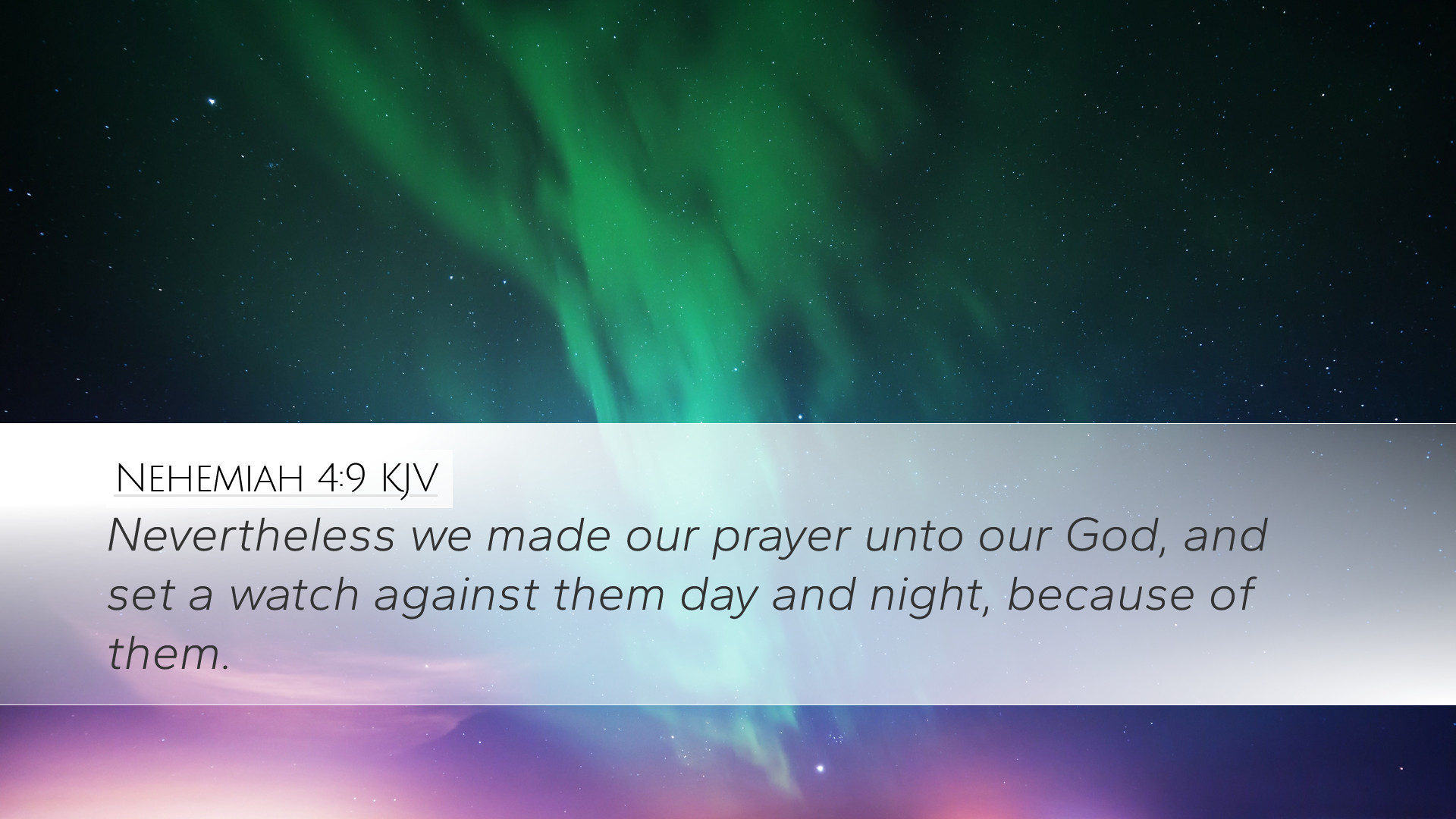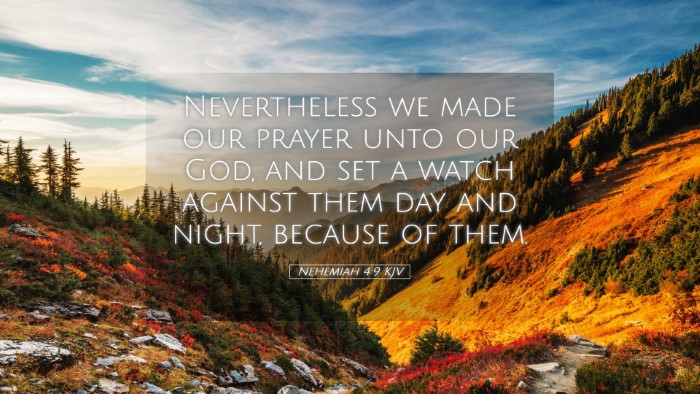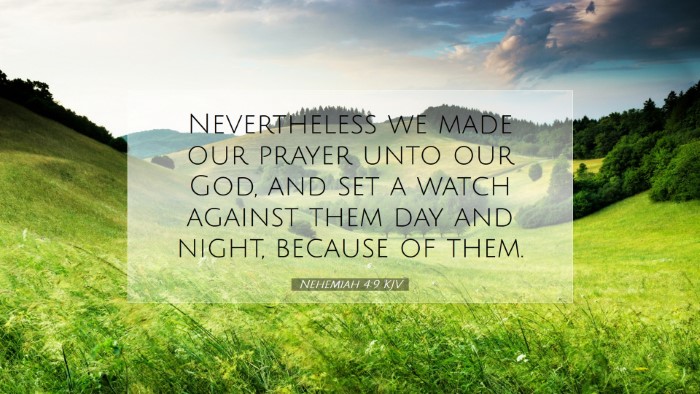Commentary on Nehemiah 4:9
Nehemiah 4:9 states: "Nevertheless we made our prayer unto our God, and set a watch against them day and night, because of them." This verse encapsulates the combined strategy of reliance on divine intervention and practical action in the face of opposition. The insights derived from several public domain commentaries offer a deep understanding of this historical moment in the life of Nehemiah and the nation of Israel.
Context and Background
The Book of Nehemiah details the rebuilding efforts of the walls of Jerusalem after the Babylonian exile. Nehemiah, appointed as governor, faces considerable opposition from those who do not want to see the city restored. The hostility from their enemies, particularly from the surrounding nations, increases as the work progresses.
Matthew Henry's Commentary
According to Matthew Henry, this verse highlights the necessity for prayer in times of difficulty. Nehemiah emphasizes the importance of prayer coupled with vigilance. Henry states:
- “The people did not rely solely on their strength or efforts in the work of rebuilding, but earnestly turned to God for assistance."
- “Prayer was their first recourse in the face of danger.”
Henry also notes that the act of "setting a watch" serves as a practical demonstration of their commitment to not only trust but also take responsibility for their safety. This unified approach of prayer and action illustrates a fundamental principle of faith in action, essential for believers who face trials.
Albert Barnes' Notes
Albert Barnes emphasizes the dual necessity of spiritual engagement through prayer and practical readiness. He comments:
- “Nehemiah’s example teaches that while we trust in God, we must also be actively vigilant.”
- “The resolve to pray and keep watch suggests that divine providence works in tandem with human responsibility.”
Barnes also urges readers to consider the nature of watchfulness. Spiritual vigilance is paramount; it signifies one’s readiness to confront adversity with reliance on God's strength. Thus, the act of setting a watch demonstrates their preparedness to act should prayer alone not suffice for their protection.
Adam Clarke's Commentary
Adam Clarke provides a theological reflection on the underlying message of Nehemiah’s actions. He states that prayer is not merely a personal act but part of the collective faith of the community.
- “The act of praying together reinforces the unity of purpose among God’s people, especially in tumultuous times.”
- “The importance of communal prayer cannot be overstated.”
Clarke suggests that Nehemiah’s leadership is marked by wisdom, as he sees both the need for divine help and the tactical need for safeguarding the project. He underscores that leaders in faith must exemplify this integration of seeking God's help while also arranging for practical measures to protect and facilitate God’s work.
Theological Implications
This verse invites reflection on various theological aspects:
- Dependence on God: The act of prayer signifies a deep reliance on God’s power and provision, acknowledging human limitations.
- Active Faith: Setting a watch represents the active component of faith. It illustrates that faith involves responsibility, courage, and preparedness.
- Community Engagement: The recognition that the body of believers must come together in both prayer and action highlights the necessity of community in spiritual endeavors.
Practical Applications
For modern readers, especially pastors and theologians, there are several lessons to be drawn from Nehemiah 4:9:
- Encouragement of Collective Prayer: Facilitate prayer meetings, emphasizing community prayer in times of opposition or difficulty.
- Preparation in Ministry: Just as Nehemiah prepared for attacks, church leaders should anticipate challenges and prepare both spiritually and practically.
- Balanced Approach: Preach the balance of trusting God while also taking actionable steps to further God's work and protect His people.
Conclusion
Nehemiah 4:9 stands as a vivid reminder of the harmony between faith and action. The combined insights from renowned commentators like Matthew Henry, Albert Barnes, and Adam Clarke provide a rich understanding for pastors, students, and theologians alike. This verse amplifies the need for vigilance and prayer, urging the body of Christ to lean into God’s strength while remaining active participants in His mission on Earth.


